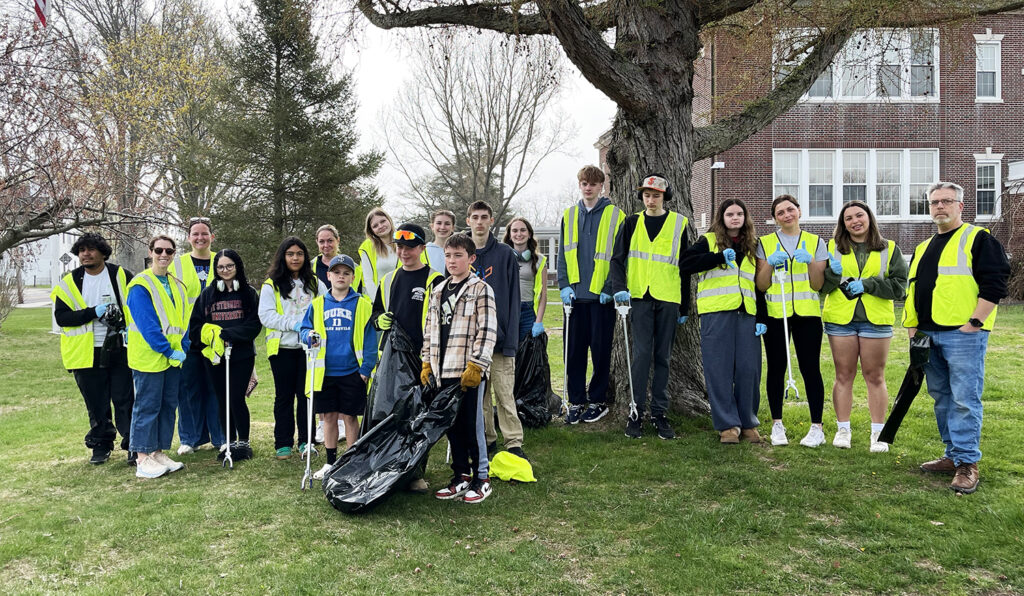Shelter Island Ethics Board chairman cites process: Specific decisions reveal methods

“Financial conflicts of interest are basically unavoidable in small town governments, especially when a lot of officials are volunteer or part-time employees and the ethics standard applies to their private work and their close relatives, too. Such financial conflicts can extend to direct family members and can be resolved by disclosure to supervisors or the Town Board and Board of Ethics and by recusing themselves from the decision-making process to protect themselves from accusations of impropriety.”
Those are the words of Duff Wilson, chairman of the reconstituted Board of Ethics.
In some cases, an employee or official must recuse from a discussion and vote. In other cases it may simply be appropriate to acknowledge a potential conflict publicly without a need to recuse.
He pointed to two members of the current administration — Deputy Supervisor Meg Larsen and Councilman Benjamin Dyett — who have sought advice from the Board of Ethics involving their current or former private interests.
Supervisor Amber Brach-Williams, recused herself from a discussion of three ice cream vendors who sought Town Board approval to operate on town-owned land during the summer months, without first consulting the Board of Ethics. One of the three was a former client of hers when she operated her accounting business prior to taking office.
Ms. Larsen has recused herself from decisions because she is employed by her family business, Shelter Island Sand, Gravel & Contracting that installs septic systems.
She leaves the room during discussions, but is not required to do so when a vote is taken, but she doesn’t cast a vote.
Councilman Dyett has a background as a lawyer, business owner and entrepreneur and sought guidance from the Board of Ethics to ensure he was on sound ground knowing when he should step aside, or would not have to recuse himself from decisions.
The Board of Ethics spent many months rewriting an ethics code to guide their work, studying codes in other small New York towns. The new code has strict requirements for recusals and disclosures, Mr. Wilson said.
It even provides for removal of anyone “who would have more than ‘sporadic’ conflicts and recusals,” he said. “The old code just had a vague ethics statement and totally confidential advice.”
Since the adoption of the new code, there has been consensus on all cases and considerable transparency with many decisions, some of which appear with links to them on the Board of Ethics web page, Mr. Wilson said.
The new code allows for outside complaints to be lodged or initiated by Town Board investigations. It is specific and enforceable and follows New York State law.
It applies to nine elected officials, approximately 60 town employees, about 100 committee and board members and about 70 part-time or seasonal workers and volunteers.
There were more than a few comments heard in recent months about Planning Board Chairman Ian McDonald recusing himself from a decision in the 7 Chequit Avenue wetlands permit decision, since he is an architect on the project.
The Board of Ethics determined Mr. McDonald has recused himself from two of 56 applications the Planning Board has heard in the past five years and two of 17 wetlands applications since the Planning Board was given final decision on those. The Board of Ethics considers the numbers “sporadic” and not in need of removal of Mr. McDonald from his Planning Board post.
Judgments are generally influenced by financial considerations, Mr. Duff said.
As for the man who has led the Board of Ethics since its reorganization, Mr. Wilson is a retired investigative reporter working under journalistic ethics codes throughout his career at Reuters, The New York Times and The Seattle Times. He has been a three-time Pulitzer Prize finalist, the highest award a journalist can receive. He taught investigative journalism at Columbia University.
“The town ethics board seemed like a good volunteer activity that fit my interests aside from journalism,” he said.









